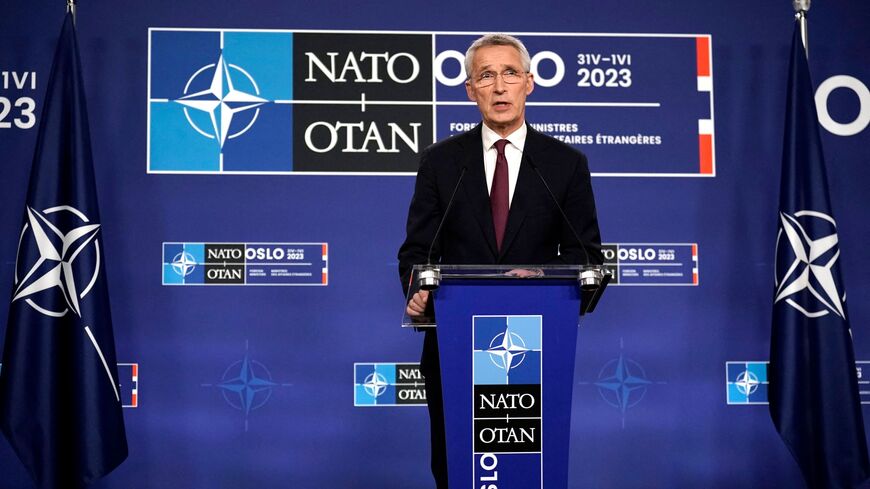ANKARA — With less than a month to go before NATO’s historic leaders summit in Lithuania in early July, Ankara remains intransigent on Sweden’s pending membership bid, following a nearly three-hour meeting in the Turkish capital on Wednesday between officials of Turkey, Sweden and NATO.
Turkey announced that the two countries agreed to continue talks on Stockholm's pending accession to the alliance as the latest round of negotiations ended without a breakthrough.
Speaking after the meeting, NATO Chief Jens Stoltenberg, in turn, struck a relatively optimistic tone, saying that “some progress” had been achieved. “We will continue to work and we all will welcome Sweden as a full member as soon as possible,” he said, adding that Sweden could still join the alliance before the bloc’s Vilnius summit on July 11-12. Stoltenberg discussed Sweden's pending membership with US President Joe Biden on Tuesday.
Along with NATO and Stockholm, Washington has also adamantly stressed its expectation for Sweden’s accession to be finalized before the Vilnius summit in four weeks. US NATO envoy Julianne Smith said on Wednesday, “Watching what Sweden in particular has done over the last year is very encouraging to us. … Again, our anticipation is that this is within reach by Vilnius.”
Wednesday’s meeting marked the fourth round of the talks to settle Ankara’s objections to Finland and Sweden’s NATO memberships. Finland joined the alliance in early April, but along with Hungary, Turkey is still dragging its feet on Sweden’s accession, which requires consensus among all 30 member states. The Nordic nations announced their membership bids in face of the Russian invasion of Ukraine.
The meeting in Ankara discussed how Stockholm's recent measures against terrorism have impacted terror groups’ activities in Sweden, according to an official Turkish readout. “The parties agreed to continue working on the prospective concrete steps,” the readout added.
Sweden hosts a large Kurdish diaspora, but Ankara has some members of the diaspora on its extradition list as being allegedly linked to the outlawed Kurdistan Workers Party (PKK). Turkey has been requesting Sweden to deport or extradite these members.
The armed outfit of the PKK has been fighting against the Turkish state for nearly four decades for self-rule inside Turkey and is considered a terror group by the majority of Western capitals. Turkey also seeks extradition of individuals over their links to US-based Sunni cleric Fethullah Gulen. Ankara accuses Gulen of masterminding the 2016 coup attempt.
Along with lifting a de facto defense sales embargo against Turkey, Stockholm has amended its constitution and counterterrorism laws in a bid to address Ankara’s national security concerns. Sweden asserts that it fulfilled its commitments to Turkey. Ankara, however, appears unwilling to greenlight the Nordic nation’s accession to the bloc without securing more restrictions against individuals and groups that it believes are linked with terrorism.
A series of demonstrations held in Stockholm by Kurdish activists over the past months have further complicated the negotiations. Speaking on Tuesday, Turkish President Recep Tayyip Erdogan blasted Swedish authorities for allowing those demonstrations. “This issue is not about constitutional amendment or changing laws. What's this about? What does law enforcement do? Their job should be blocking these [protests],” Erdogan told reporters as he was returning from Azerbaijan. He added that his country couldn’t approve the Swedish bid unless Stockholm fulfills its commitments to Turkey.
Earlier this month, a Swedish court paved the way for extradition of a convict who was wanted by Turkey over drug charges. However, Ankara seeks extradition or deportation of dozens of individuals over alleged terror links, as well as a series of other restrictions against groups.
Jared Szuba contributed to this report from Washington, DC.







